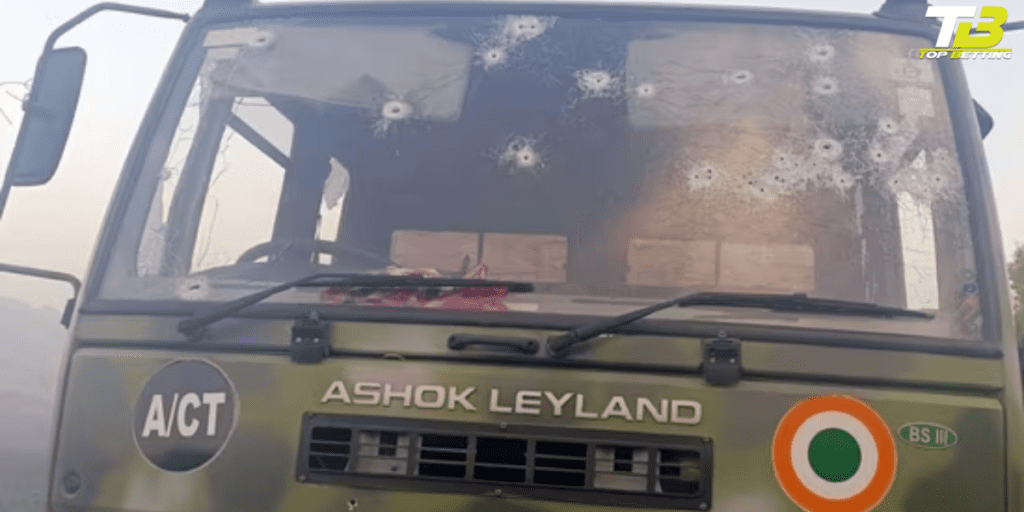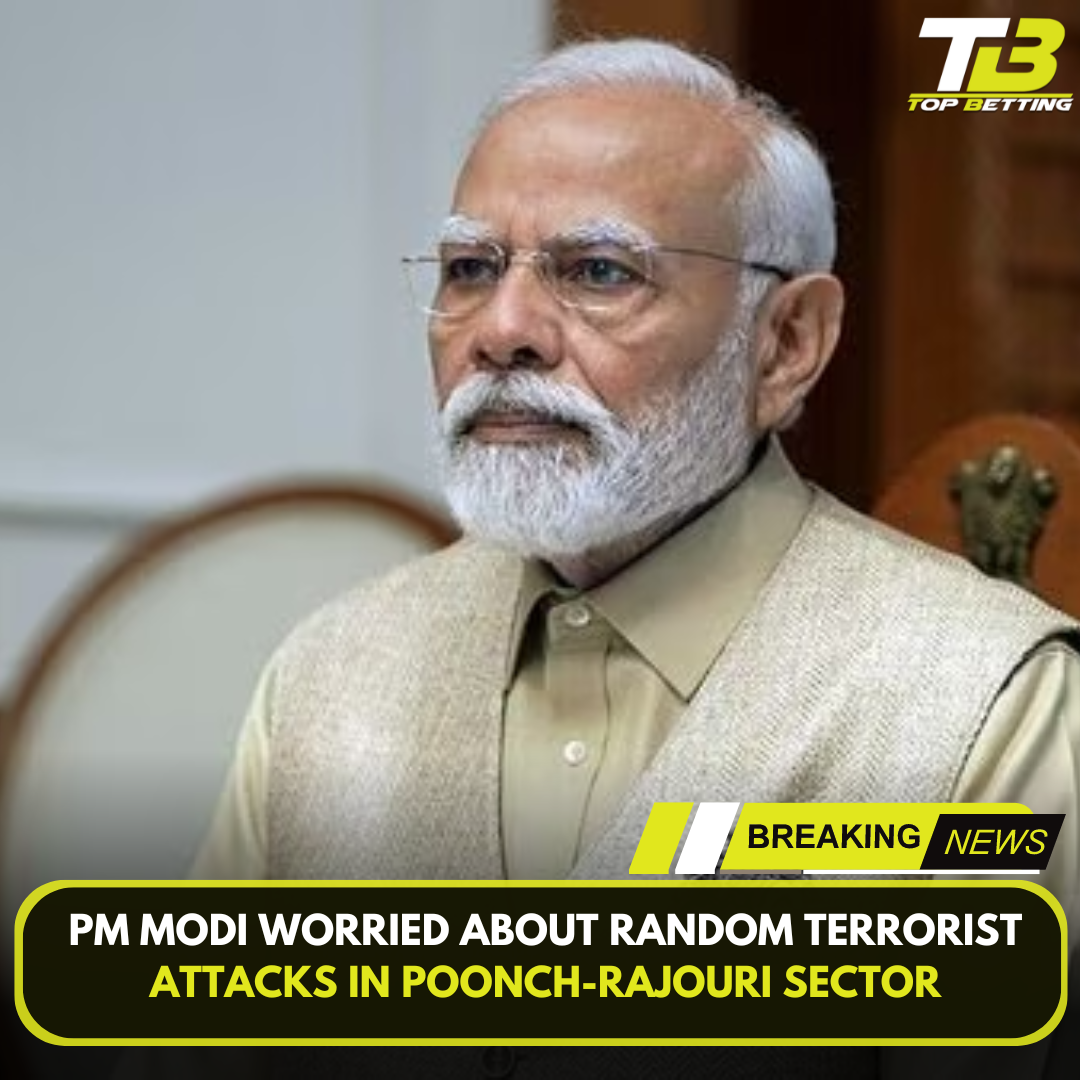
Modi Concern Over Poonch-Rajouri Terror Threat
In a concerning development, Prime Minister Narendra Modi has expressed deep unease over the recent spate of random terrorist attacks in the Poonch-Rajouri sector of Jammu and Kashmir. This volatile region, situated in close proximity to the Line of Control (LoC), has witnessed a resurgence of terror activities, with various Pakistan-based militant groups exploiting the rugged terrain to stage strikes against Indian security forces and civilians.
Anatomy of the Recent Poonch Attack
The latest incident occurred on a recent Saturday, when an Indian Air Force (IAF) vehicle convoy was targeted by terrorists in the Poonch district. The assailants, using assault rifles and area weapons, unleashed a barrage of bullets, killing one IAF corporal and injuring four others. Despite the convoy following standard operating procedures, the well-coordinated attack caught the occupants of the last vehicle unaware, with the terrorists aiming for the driver and support staff.
Electro-Magnetic Surveillance Reveals Terrorist Presence
According to top officials, electro-magnetic surveillance of the Poonch-Rajouri sector has indicated the presence of around 12 terrorists, divided into four groups, belonging to a mix of Pakistan-based terror outfits. This intelligence gathering has provided crucial insights into the modus operandi of these militants, who are leveraging the thickly forested mountain terrain to engage in asymmetric warfare against the Indian security forces.
Charanjit Singh Channi’s Controversial Claim
The recent terror attack in Poonch has also sparked a political controversy, with Congress leader and former Chief Minister of Punjab, Charanjit Singh Channi, denouncing the incident as a “political stunt” orchestrated by the BJP during the 2024 election campaign. However, the Indian Army has firmly refuted this allegation, asserting that the threat posed by the terrorists in the region is very real and demands immediate attention.
Persistent Terrorist Presence in Rajouri-Poonch Sector
The Rajouri-Poonch sector has been a hotbed of terrorist activity for the past three years, with militants from Pakistan-based groups such as Jaish-e-Mohammed and Lashkar-e-Tayyeba using the area for infiltration and launching attacks in the hinterland of the Union Territory. Despite the Modi government’s efforts to empower the armed forces to tackle the terrorist menace, the Nagrota-based 16 Corps formation, along with the local police, have struggled to neutralize the militants in the region.
Terrain Challenges and Asymmetric Warfare
The thickly forested mountain terrain of the Poonch-Rajouri sector provides the perfect breeding ground for asymmetric warfare, with the terrorists being locals of the area on both sides of the LoC. This allows them to blend seamlessly with the local population and live off the land, making it extremely challenging for the security forces to track and eliminate them.
PM Modi’s Concern and the Need for a Comprehensive Counter-Offensive
Prime Minister Narendra Modi personal concern over the random terror attacks in the Poonch-Rajouri sector underscores the gravity of the situation. The Indian government’s efforts to grant the armed forces a free hand in tackling the terrorists have yielded limited success, necessitating a more comprehensive counter-terror operation in the region. However, such an operation is likely to come at the cost of significant casualties, given the formidable terrain and the tactical advantage enjoyed by the militants.
Infiltration and Cross-Border Linkages
The persistent terrorist presence in the Poonch-Rajouri sector has also enabled Pakistan-based groups like Jaish-e-Mohammed and Lashkar-e-Tayyeba to use the area for infiltration and staging attacks in the hinterland of the Union Territory. This has posed a major challenge for the Indian security establishment, as they grapple with the task of securing the volatile border region while also safeguarding the civilian population.
Strengthening Intelligence and Operational Capabilities
To effectively address the terrorist threat in the Poonch-Rajouri sector, the Indian government and the security forces will need to enhance their intelligence gathering capabilities, improve coordination between various agencies, and bolster their operational preparedness. This may involve deploying specialized counter-insurgency units, upgrading surveillance and reconnaissance assets, and fostering closer cooperation with the local population to gather real-time information on the militants’ movements and plans.
The Imperative of Securing the Frontier
The Poonch-Rajouri sector’s strategic significance as a frontier region bordering Pakistan-occupied Kashmir underscores the urgency of addressing the persistent terrorist threat. Failure to do so not only jeopardizes the security of the local population but also undermines India’s broader efforts to maintain the territorial integrity of the Union Territory and deter cross-border aggression.
Balancing Operational Effectiveness and Civilian Protection
As the Indian security forces prepare to launch a major counter-terror operation in the Poonch-Rajouri sector, they will need to strike a delicate balance between operational effectiveness and the protection of civilian lives. The rugged terrain and the militants’ familiarity with the local environment pose significant challenges, requiring the deployment of specialized tactics and equipment to minimize collateral damage.
International Scrutiny and the Need for Diplomatic Engagement
The Poonch-Rajouri terrorist threat also has implications for India’s broader regional and international diplomatic engagements. The country’s efforts to garner global support in its fight against cross-border terrorism will require sustained diplomatic outreach and the presentation of a compelling case to the international community, highlighting the gravity of the threat and the need for coordinated action to address it.

Conclusion
The persistent terrorist threat in the Poonch-Rajouri sector represents a significant challenge to India’s national security and the safety of its citizens. Prime Minister Narendra Modi’s personal concern over the issue underscores the urgency of the situation and the need for a comprehensive, multi-pronged strategy to address the crisis. By strengthening intelligence capabilities, enhancing operational preparedness, and fostering closer cooperation with the local population, the Indian government and security forces can work to secure the frontier and safeguard the people of Jammu and Kashmir.











